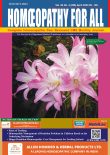Academic Anxiety: A Homeopathic Perspective on Examination Funk and Its Holistic Management
Keywords:
Examination funk, An ticipatory anxiety, Hypothalamic– pituitary–adrenal (HPA) axis, Cortisol, HomoeopathyAbstract
Stress is a psychological arousal state that arises when external demands exceed an individual’s coping capacity, leading to adverse effects on cognition, emotions, and physiology. Age groups of 11 – 18 years and medical students, in particular, face multiple stressors such as academic pressure, future uncertainty, and adaptation to diverse teaching protocols, which often impair learning and performance. Examination funk - an acute, transient yet intense form of anticipatory anxiety, represents a common manifestation of such stress. It is characterized by overwhelming dread, loss of confidence, poor concentration, memory block, irritability, palpitations, sweating, diarrhoea, trembling, and insomnia. Patho-physiologically, examination funk involves hyperactivation of the hypothalamic–pituitary–adrenal (HPA) axis and autonomic nervous system, resulting in elevated secretion of adrenaline and cortisol, with subsequent impact on brain and cardiovascular function. From a homoeopathic perspective, this condition signifies a disturbance of the vital force, where individualized remedies can restore the equilibrium. Medicines such as Gelsemium sempervirens, Argentum nitricum, Lycopodium clavatum, Aconitum napellus, and Kali phosphoricum correspond closely to the emotional typologies and neuroendocrine responses observed in examination funk. Additionally, supportive systems like Biochemic remedies (e.g., Kali phos) and Bach Flower remedies (e.g., Larch, Mimulus) offer gentle yet effective adjuncts in reducing anticipatory fear and restoring inner calm. This article explores the psychological and pathophysiological basis of examination funk, its clinical features, and the role of classical homoeopathic therapeutics, highlighting the mind-body integration and individualized management essential for affected students.
Downloads
References
1. Joëls M, Pu Z, Wiegert O, Oitzl MS, Krugers HJ. Learning under stress: how does it work? Trends Cogn Sci. 2006 Apr;10(4):152–158. doi: 10.1016/j.tics.2006.02.002. Epub 2006 Mar 2. PMID: 16513410.
2. Schwabe L, Joëls M, Roozendaal B, Wolf OT, Oitzl MS. Stress effects on memory: an update and integration. Neurosci Biobehav Rev. 2012 Aug;36(7):1740–1749. doi: 10.1016/j.neubiorev.2011.07.002. Epub 2011 Jul 13. PMID: 21771612.
3. Lovallo WR, Gerin W. Psychophysiological reactivity: mechanisms and pathways to cardiovascular disease. Psychosom Med. 2003 Jan–Feb;65(1):36–45. doi: 10.1097/01.psy.0000033128.44101.c1. PMID: 12554814.
4. Chida Y, Steptoe A. Greater cardiovascular responses to laboratory mental stress are associated with poor subsequent cardiovascular risk status: a meta-analysis of prospective evidence. Hypertension. 2010 Apr;55(4):1026–1032. doi: 10.1161/HYPERTENSIONAHA.109.146621. Epub 2010 Mar 1. PMID: 20194301.
5. Matthews KA, Katholi CR, McCreath H, Whooley MA, Williams DR, Zhu S, Markovitz JH. Blood pressure reactivity to psychological stress predicts hypertension in the CARDIA study. Circulation. 2004 Jul 6;110(1):74–78. doi: 10.1161/01.CIR.0000133415.37578.E4. Epub 2004 Jun 21. PMID: 15210592.
6. Matthews KA, Zhu S, Tucker DC, Whooley MA. Blood pressure reactivity to psychological stress and coronary calcification in the Coronary Artery Risk Development in Young Adults Study. Hypertension. 2006 Mar;47(3):391–395. doi: 10.1161/01.HYP.0000200713.44895.38. Epub 2006 Jan 30. PMID: 16446400.
7. Jennings JR, Kamarck T, Manuck S, Everson SA, Kaplan G, Salonen JT. Aging or disease? Cardiovascular reactivity in Finnish men over the middle years. Psychol Aging. 1997 Jun;12(2):225–238. doi: 10.1037//0882-7974.12.2.225. PMID: 9189982.
8. Groeneweg FL, Karst H, de Kloet ER, Joëls M. Rapid non-genomic effects of corticosteroids and their role in the central stress response. J Endocrinol. 2011 May;209(2):153–167. doi: 10.1530/JOE-10-0472. Epub 2011 Feb 28. PMID: 21357682.
9. Boericke W. Pocket Manual of Homeopathic Materia Medica & Repertory. New Delhi, India: B Jain; 2023.
10. Kent TJ. Lectures on Materia Medica with New Remedies. New Delhi, India: B Jain; 2002.
11. Brunton L, Lazo JS, Parker K. Goodman & Gilman’s The Pharmacological Basis of Therapeutics. 11th ed. Sanford L, Gilman A, editors. New York, NY: McGraw-Hill Medical; 2005.
12. Thaler K, Kaminski A, Chapman A, Langley T, Gartlehner G. Bach Flower Remedies for psychological problems and pain: a systematic review. BMC Complement Altern Med [Internet]. 2009;9(1):16. Available from: http://dx.doi.org/10.1186/1472-6882-9-16




